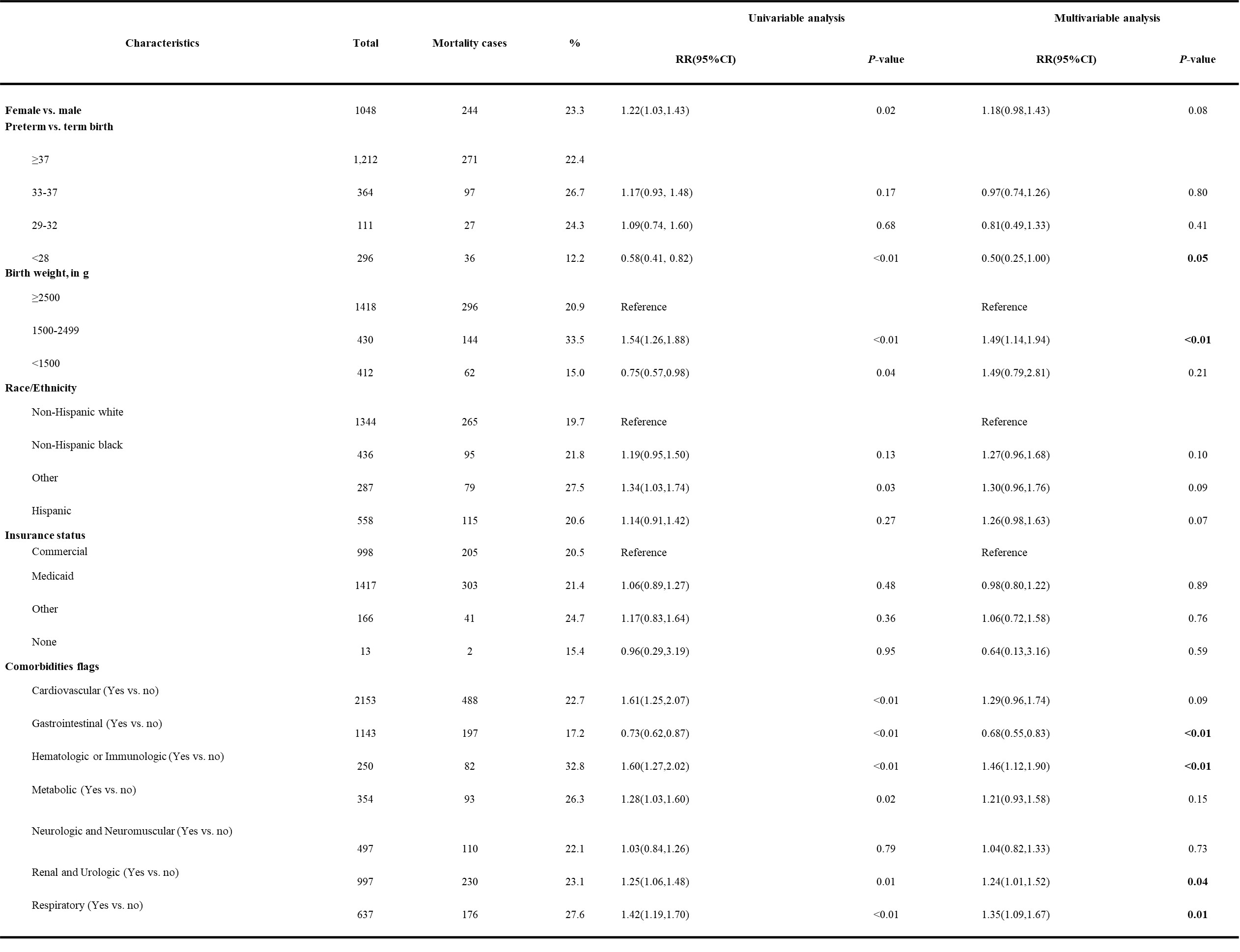Neonatal Nephrology/AKI
Neonatal Nephrology/AKI 1
226 - The epidemiology of perioperative neonatal acute kidney injury
Publication Number: 226.242

Tahagod Mohamed, MD
Assistant Professor
Nationwide Children's Hospital
Columbus, Ohio, United States
Presenting Author(s)
Background:
Neonatal Acute kidney injury (AKI) is an abrupt reduction in kidney function that acutely leads to abnormal fluid and electrolyte homeostasis. Acutely, kidney injury in hospitalized neonates is independently associated with increased morbidity and mortality. Long-term, neonatal AKI may lead to chronic kidney disease. Several factors are known to increase the risk of development of neonatal AKI, including prematurity, birth asphyxia, exposure to nephrotoxic medications, and surgical procedures. Perioperative AKI is associated with poor outcomes in pediatric patients. Perioperative AKI is characterized in children and to a lesser extent in neonates undergoing cardiac surgery. The epidemiology of perioperative neonatal AKI in non-cardiac patients is under-evaluated, and most reports are from single-center studies. The comorbidities associated with perioperative neonatal AKI are understudied, and the risk factors associated with mortality in neonates who develop perioperative AKI are unclear.
Objective: To characterize the epidemiology and risk factors of perioperative AKI in neonates undergoing non-cardiac surgeries and outline the associated mortality risk factors.
Design/Methods:
Retrospective study of neonates ≤ 28 days old who underwent inpatient surgeries in 46 US children's hospitals participating in the Pediatric Hospital Information System (PHIS) between 2016-2021. The overall prevalence of neonatal AKI in the PHIS database ranges 1-3%. In this study we evaluated the prevalence of perioperative neonatal AKI, associated comorbidities, and risk factors for mortality.
Results: Our cohort included 26,195 neonates who underwent non-cardiac procedures during the study period. Perioperative AKI occurred in 10% of neonates. The prevalence of AKI varied by gestational age (9.1-14.5%) and birthweight (9-11.9%) with the highest AKI rates in extremely preterm and very low birth weight neonates. Comorbidities associated with high-risk of perioperative AKI included metabolic, hematologic/immunologic, cardiovascular, and renal disorders. The relative risk of mortality in perioperative AKI was highest in neonates with low birth weight (1.49, 1.14-1.94) and those with hematologic (1.46, 1.12-1.90), renal (1.24, 1.01-1.52) and respiratory comorbidities (1.35, 1.09-1.67), Table 1.
Conclusion(s):
Perioperative AKI is common in neonates undergoing non-cardiac surgeries. Neonates with high-risk comorbidity profiles for the development of perioperative AKI and mortality may benefit from close surveillance of their kidney function in the perioperative period. 
